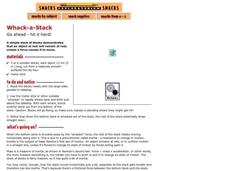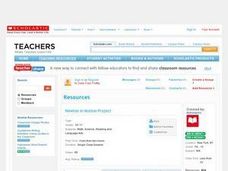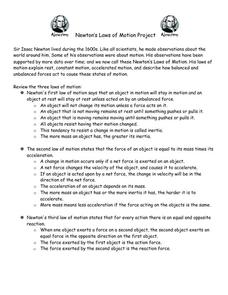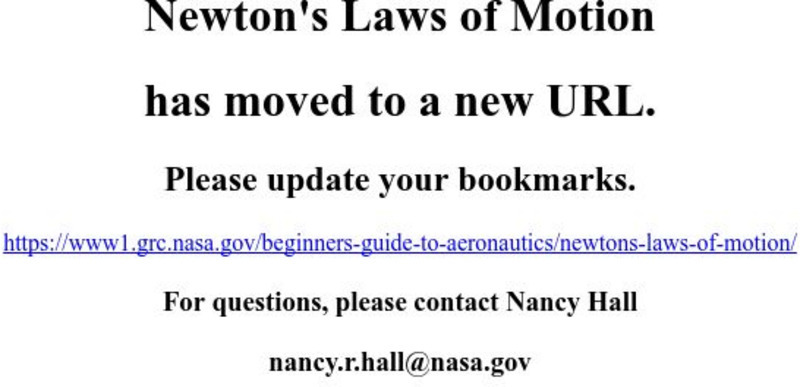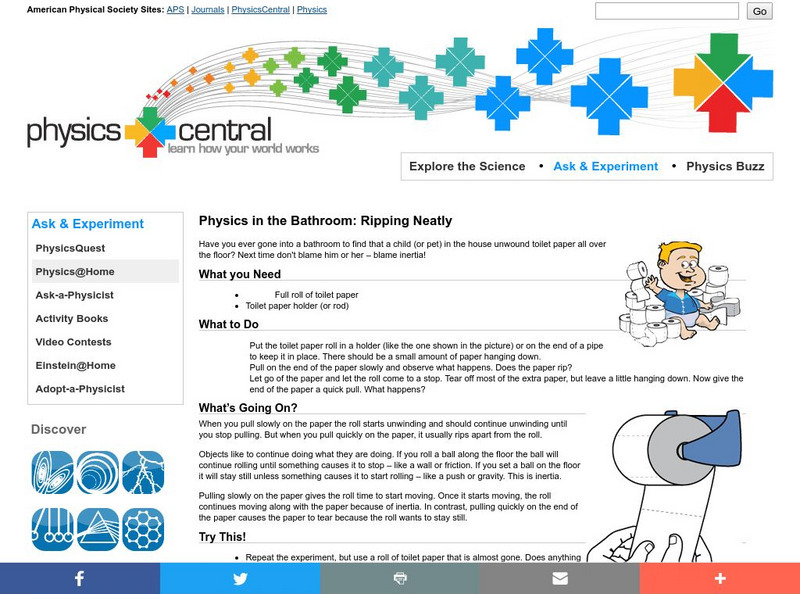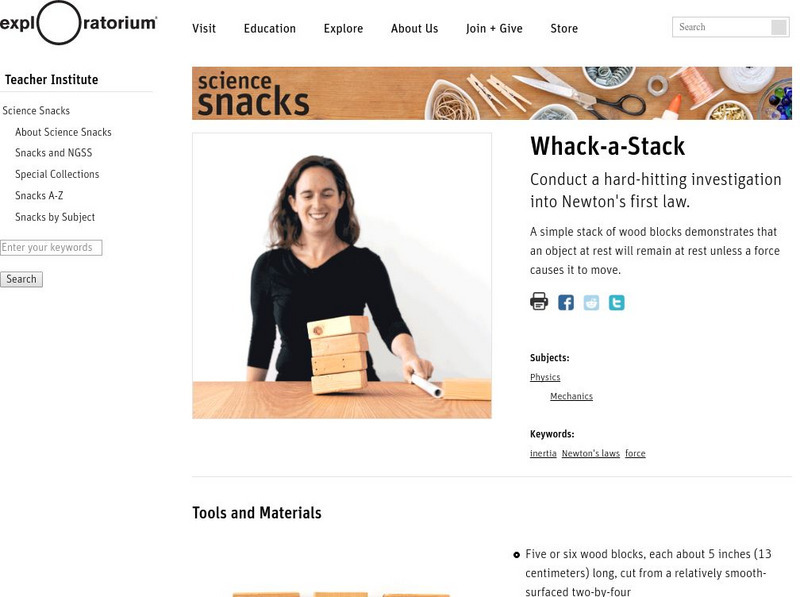Exploratorium
Whack-a-Stack
Go wild as you hit a stack of wooden blocks to demonstrate Newton's first and second laws of motion. The blocks at the top of the stack stay put as you knock one at a time out of the bottom. Note, however, that you will need to...
Curated OER
Newton in Motion-Project
Students investigate Newton's Third Law of Motion. In this Newton's Third Law of Motion lesson, students explore the law in the real world. Students break down the definition for understanding and do an experiment using a balloon.
MENSA Education & Research Foundation
Roller Coaster Mania!
Raise the energy level of your physical science class with this exciting hands-on activity. Applying their knowledge of kinetic and potential energy and Newton's laws of motion, young engineers use foam tubing and marbles to create...
Sharp School
Newton’s Laws of Motion Project
After a review of all three of Newton's laws, physical scientists complete a choice project. They can create a book in which they collect pictures where the laws of motion are depicted, produce a PowerPoint presentation, or produce a...
DiscoverE
Launch It
Launch pupil interest in rockets. Scholars build rockets out of straws and balloons to learn about Newton's Third Law of Motion. Their task is to hit a target five feet away. It's not as easy as it seems!
Exploratorium
Marshmallow Puff Tube
Let physical science stars experience Newton's first law of motion by blowing marshmallows out of cardboard tubes! Using different lengths of tubing, they find that more force is needed to overcome increasing friction, and they have a...
DiscoverE
Slinky® Science
Toys are great for learning about physics. Scholars use Slinky® toys to study Newton's laws of motion and types of energy. After a little play, they then model longitudinal and transverse waves with the Slinky® toys.
Museum of Science
Cup Drop
Create egg drop soup. Teachers first set up eggs that are held up above cups of water with a piece of cardboard and cardboard tubes. Learners try to determine a way to get the eggs to drop into the cups. Using a broom, the instructor...
NASA
Egg Drop Lander
You have to crack a few eggs to make a good engineer! Working in small groups, young scholars design, build, and test devices that protect an egg from breaking when dropped from a ladder.
DiscoverE
Rocket-Powered Ski Lift
If a ski lift had rockets, imagine how fast it would be! Scholars let their imaginations take flight as they build models for such a ski lift. Rather than using a rocket, though, they'll use a much safer balloon as the power source.
DiscoverE
Air-Powered Mini Rocket
Does the position of the clips make a difference? The activity provides directions to build and test a paper rocket. Pupils attach paper clips to the rocket in different configurations and measure the distance the rocket flies each time....
Teach Engineering
The Great Gravity Escape
Groups simulate an orbit using a piece of string and a water balloon. Individuals spin in a circular path and calculate the balloon's velocity when the clothes pin can no longer hold onto the balloon.
NASA
Glenn Research Center: Newton's Laws of Motion
NASA presents a concise explanation of Newton's three laws of motion. Click on the highlighted vocabulary to find more detailed and illustrated descriptions. Included is a link to a movie that shows how the laws of motion described the...
Museum of Science
Museum of Science and Industry Chicago: Online Science: Drop Eggs Into Cups
Step-by-step illustrated instructions showing how to drop four eggs into four cups without touching them. Demonstrates the concept of inertia according to Newton's first law of motion.
Physics Central
Physics Central: Physics in the Bathroom: Ripping Neatly
A great science experiment to demonstrate Newton's First Law of Motion, inertia. There is a step-by-step guide on how to conduct this experiment and links to other sites about inertia.
Science Bob Pflugfelder
Science Bob: The Lincoln High Dive
Instructions for a science demonstration of Newton's first law of motion using common supplies. Learn how to turn the demonstration into an experiment.
Exploratorium
Exploratorium: Science Snacks: Whack a Stack
Investigate Newton's first law of motion using just a set of wood blocks.
Michigan Reach Out
Nasa: Soda Pop Can Hero Engine
Students explore all three parts of Newton's Laws of Motion by observing a spinning pop can.
Teachers TryScience
Teachers Try Science: Eggs at Rest Stay at Rest
Students demonstrate the properties of inertia with some common kitchen materials.
Read Works
Read Works: The Science of Fun!
[Free Registration/Login Required] An informational text about the science behind circus acts. A question sheet is available to help students build skills in reading comprehension.
